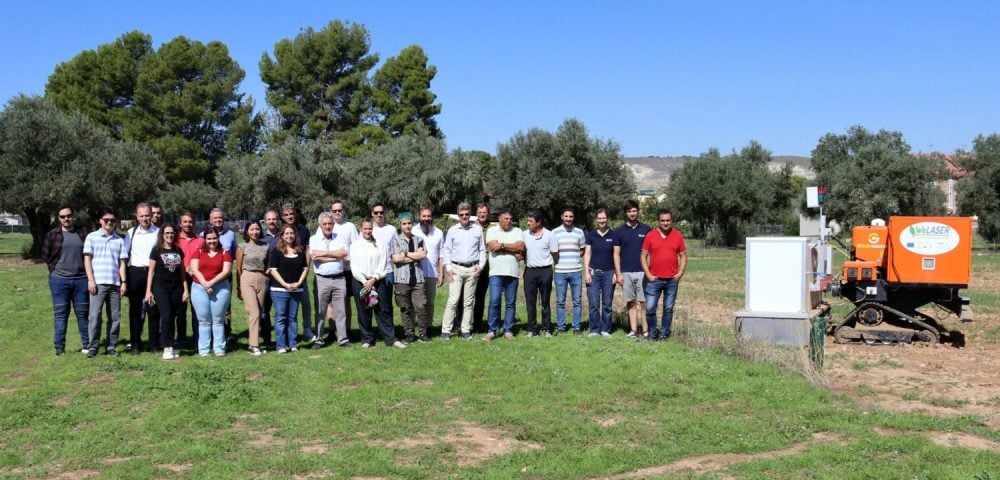The WeLASER consortium, an international partnership formed under the EU’s “Horizon 2020” program, has achieved a significant milestone in sustainable agriculture. This collaboration of research centers, universities, private companies, and European farmers’ organizations has developed a precision weeding tool, marking a pivotal step towards herbicide-free agriculture.
Key Features of the WeLASER Prototype
- Advanced AI-Based Detection System: The prototype boasts an autonomous vehicle with a sophisticated AI-driven detection system. This technology enables precise identification and localization of weeds for eradication, revolutionizing weed management in agriculture.
- High-Powered Laser for Efficient Weeding: The tool employs a high-powered fiber laser source, targeting the growth center of weeds. This method ensures effective and precise weed control, significantly reducing the need for chemical herbicides.
- Cloud Computing and IoT Integration: The prototype’s data management system is supported by cloud computing architecture, enhancing its efficiency and scalability. Moreover, incorporating IoT technology facilitates better control and monitoring of the weeding process.
Collaborative Effort Across Europe
The success of WeLASER is attributed to the cooperation of ten partners from eight EU member states, including leading research institutions and agricultural organizations. This broad collaboration has been instrumental in pooling expertise and resources, resulting in the creation of this innovative tool.
Innovative Technologies and Applications
Beyond the primary goal of weed control, the project has led to several advancements:
- A high-power fiber laser source with an innovative cooling concept reduces energy demands.
- It has enhanced power supply systems for autonomous robotic platforms.
- An intelligent navigation system for precision farming can identify various crop types.
- AI-based laser weed control implements offer a broad working range for different crop types and adhere to safety regulations.
Environmental and Health Implications
- Reduction in Herbicide Use: The WeLASER project represents a significant stride in reducing the reliance on synthetic herbicides, which have detrimental effects on beneficial soil organisms and potentially human health.
- Addressing Weed Resistance: This technology offers a sustainable and effective alternative to weeds that are increasingly resistant to existing herbicides.
- Sustainable Food Production: This innovation aligns with the global challenge of ensuring food production in a climate-changing world without harming the environment or human health.
The WeLASER project is not just about developing a new agricultural tool; it’s about transforming how we approach farming, ensuring food security, and preserving our planet for future generations. As the project moves towards further development and market readiness, its potential impact on sustainable agriculture and environmental health remains profound and far-reaching.
Image provided by WeLASER


